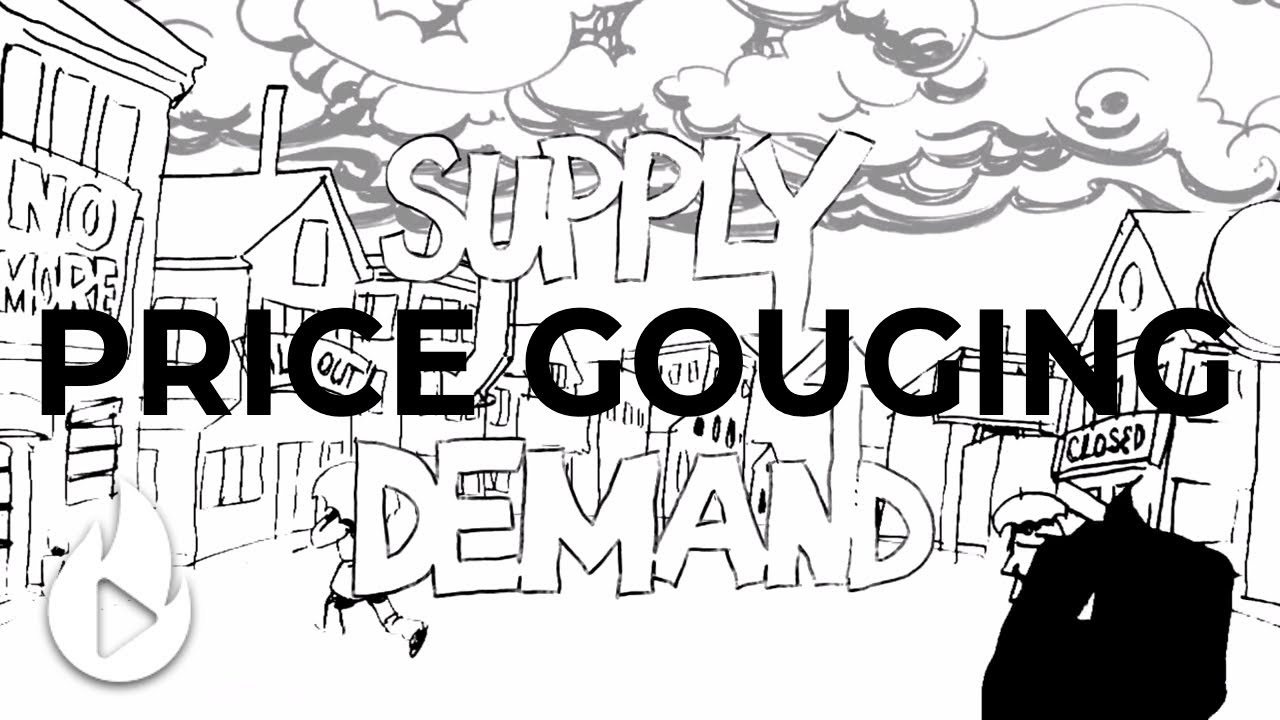Raising prices of essentials prohibitively during emergencies or periods of crisis does not exist according to most economists. The market is all about charging what the market will bear, according to them. So if a retailer can charge $20 for a loaf of bread pending an imminent Corona virus lockdown, for example, then more power to him or her.
Neoclassical economists even argue that such pricing practices promote what they call “allocative efficiency”, i.e., allocating essential items to those who need it the most and are thus willing to pay for them the most in hard times. Those are supposed to be the ones who derive the highest benefit from them, as opposed to those who could do without them if prices go up exorbitantly. So price hikes are an effective way to ration scarce resources according to the official narrative.
Technically speaking, the people most willing to pay higher prices for essential goods and equipment are the ones who derive the highest “marginal utility” from them. For example, suppose a huge storm unexpectedly snowed in a small town where only one store sells shovels. Suppose that there are only ten shovels in that store’s inventory. Suppose the average price of a shovel WAS $20 before the storm. Suppose there are hundreds of families in that town who never needed to buy shovels before. Now suppose that the owner of the store decides, AFTER the snow storm, to raise the price of a shovel from $20 to $100, or even $200, just because s/he thinks s/he can find buyers willing and able to purchase a shovel for that price. After all, THAT is what the market will bear! Let the shovels go to the highest bidder, and s/he would know best if spending $100, $200, or even more, is a good investment in a shovel or not.
But is that FAIR? Should the mayor of the town, the police, or the municipal council, intervene to fix the price of shovels at their pre-storm levels, or maybe cap any price-hike at twenty-percent, for example, at the most?
Neoclassical economists argue that ANY non-market intervention in the market price would throw things into total disarray. The doctor’s office, the gas station manager, the police station, the retail store manager himself, etc… who might find it worth their while to pay ten or twenty times the going price of a shovel to keep their entrances and driveways open are much worthier of the now scarce shovels than the inhabitants of the little house on the prairie or the average Joe Blow beer-guzzler who might just happen to lay his or her hands first on one of the ten scarce shovels in the beleaguered town if it is not appropriately priced way above his or her means.
So the neoclassical story goes…and it’s a powerful narrative, an almost overpowering one designed specifically to justify “scientifically” why those with more cash should have primary access to everything scarce during times of crisis. Because as long as the hero of the market is the consumer willing and able to pay more, it won’t be the doctor’s office, the police station, the gas station, or the grocer’s store, or any other facility with any connection whatsoever to public service, that will get the shovels, but the lazy multi-millionaire in the villa on the hill who will be willing and able to spend several thousand dollars to buy all of them shovels just to open up his driveway all the way to the residence of his local concubine so s/he would not have to feel bored during the lockdown.
In technical neoclassical jargon, the shovels will go to the one with the lowest marginal utility of money, by virtue of having so much of it, not to the one with the highest marginal utility for shovels. In reality, the neoclassical story of allocative efficiency is a myth. The practical truth is closer to the appropriation of scarce resources by the super-wealthy at the expense of everyone else during times of crisis, and otherwise, not to the most needy who just happen to have cash to finance their needs.
It is true that without some form of centralized management/ rationing that scarce shovels might as well go into the hands of those who might need them less if their prices are fixed at pre-storm levels, but that does not mean the shovels (the bread, the milk, the medicine, etc…) that people need the most during lockdowns or in a crisis situation should automatically go to the super-rich.
ASSUMING NO CORRUPTION, the central management of the allocation of scarce shovels during a snow storm is more rational, socially, than capitalism. And if corruption is an excuse for diverting scarce resources in hard times to the super-rich, then what the hell is the definition of corruption?! After all, it is those with the most cash who finance such corruption.
Ibrahim Alloush
https://www.facebook.com/ibrahim.alloush.7315/posts/167791185084147

